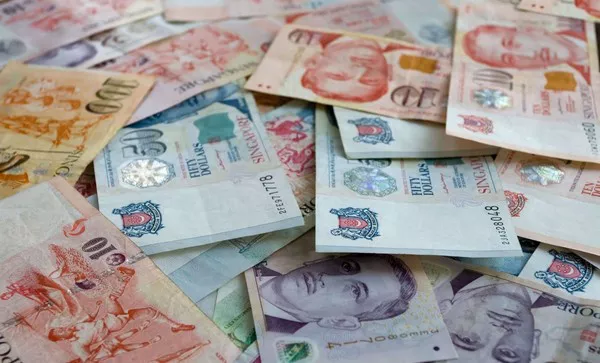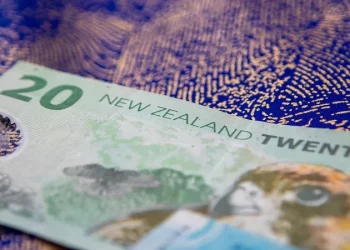Singapore, a global financial hub known for its strategic location in Southeast Asia, is a major player in the foreign exchange market. As one of the wealthiest countries in the world, the city-state attracts a considerable amount of foreign investment, international trade, and tourism. The ability to exchange currencies seamlessly is essential for businesses and travelers alike. But what is the maximum currency one can bring into Singapore, and how does this affect foreign exchange trading and financial planning? In this article, we will explore the regulations, trading strategies, and factors that influence currency entry into Singapore.
Understanding Currency Regulations in Singapore
Before we delve into trading strategies and financial planning, it’s important to first understand the regulations surrounding currency importation into Singapore. These regulations are governed by the Monetary Authority of Singapore (MAS), which acts as the central bank of Singapore and is responsible for maintaining the stability of the financial system. The primary concern for MAS is to prevent illegal activities such as money laundering and the financing of terrorism. As such, there are strict limits on the amount of currency that can be brought into the country.
The Currency Limitations
According to the Cash Reporting Regulations in Singapore, any individual entering or leaving Singapore with S$20,000 (Singapore dollars) or more in physical currency or bearer negotiable instruments (such as traveler’s checks) must declare the amount to Singapore Customs. This rule applies to both residents and non-residents.
For travelers arriving at Singapore Changi Airport, for example, there are specific declaration forms to fill out, where they must specify the exact amount of currency they are carrying. This regulation is in place to ensure transparency and to prevent illegal or suspicious activity involving large sums of money.
If the traveler fails to declare the currency, it may be subject to seizure, and penalties may apply. The act of not declaring currency over the prescribed limit can result in fines or imprisonment. Hence, it is important to be aware of this threshold when planning to bring large sums of money into the country.
Declaring Large Amounts of Foreign Currency
In the case of foreign exchange traders or individuals dealing in large sums of money, they are required to declare any foreign currency equivalent to S$20,000 or more. The rules for foreign currencies are essentially the same as for Singapore dollars. For example, if someone carries USD 15,000, which is approximately equal to S$20,000, they must declare this amount to Singapore Customs.
This regulation also applies to electronic transfers that involve amounts above S$20,000. If someone transfers more than the prescribed limit into or out of Singapore via banks or other financial institutions, they must file a report to the Monetary Authority of Singapore. This includes the declaration of foreign exchange trading activities.
By having such regulations in place, Singapore aims to maintain financial transparency and protect the integrity of its financial institutions from illicit activities.
Exchange Rate Considerations
As a financial hub, Singapore has one of the most liquid foreign exchange markets in the world. Understanding the prevailing exchange rates and the forces that influence them is crucial when entering the Singapore market.
Currency Pairs and Trading Strategies
Currency trading, also known as Forex trading, involves the exchange of one currency for another in pairs, such as the USD/SGD (US Dollar/Singapore Dollar) or EUR/SGD (Euro/Singapore Dollar). The exchange rates of these currency pairs fluctuate constantly, driven by economic and political events, interest rates, inflation, and other macroeconomic factors.
When entering Singapore or conducting Forex trading, traders must carefully analyze exchange rate movements. For instance, if a trader anticipates a strong Singapore Dollar (SGD) relative to the US Dollar (USD), they may choose to buy SGD and sell USD. Conversely, if the USD is expected to appreciate against SGD, they might sell SGD and buy USD.
The dynamics of exchange rate fluctuations influence how much a trader can earn or lose in the Forex market. Volatile exchange rate movements provide opportunities for traders to capitalize on market movements, but they also expose them to higher risk.
What Affects Exchange Rates in Singapore?
Various factors contribute to the fluctuations in exchange rates, especially when it comes to the Singapore Dollar. Let’s explore some of the key elements:
1. Interest Rates
The Monetary Authority of Singapore (MAS) controls interest rates to manage inflation and stabilize the economy. A higher interest rate in Singapore relative to other countries makes the Singapore Dollar more attractive to investors, which in turn strengthens the currency. On the other hand, lower interest rates can weaken the SGD as investors seek higher yields elsewhere.
2. Economic Indicators
Economic indicators such as GDP growth, unemployment rates, inflation, and trade balances play a major role in determining the strength of a currency. A strong and growing economy leads to a strong currency, as it signals to foreign investors that the country is economically stable.
For instance, if Singapore’s economy experiences rapid growth, demand for the Singapore Dollar will rise, driving up its value. Conversely, if the country faces economic contraction or stagnation, the value of the SGD may weaken, which can have an impact on the Forex market and currency trading.
3. Global Events and Risk Sentiment
Global events such as political instability, financial crises, or natural disasters can affect the Singapore Dollar’s value. Moreover, investor risk sentiment plays a role in exchange rate fluctuations. For example, during periods of global economic uncertainty, investors may flock to safe-haven currencies like the USD or Japanese Yen (JPY), which could cause the SGD to depreciate.
4. Commodity Prices
Singapore is a major trading hub, especially for oil and other commodities. Fluctuations in commodity prices, such as crude oil, can impact the value of the Singapore Dollar. Since Singapore is an oil-importing country, an increase in oil prices can lead to a rise in the cost of living and inflation, which could weaken the SGD.
Best Practices for Entering Singapore with Currency
Whether you are a business investor, Forex trader, or tourist entering Singapore, it is essential to be prepared and aware of the best practices for currency exchange.
1. Use of Electronic Transfers
For large amounts of money, using electronic methods such as wire transfers or bank drafts is a more secure and efficient way to move funds into Singapore. This is particularly useful for traders who are bringing in capital for investment or for individuals who are sending money from abroad. Banks and financial institutions in Singapore are well-equipped to handle electronic transfers, ensuring that transactions are processed quickly and securely.
2. Currency Exchange Services
While Singapore offers numerous currency exchange services, traders should be mindful of the prevailing exchange rates and fees associated with currency exchange. Often, the rates offered by currency exchange services at airports or hotels are not as competitive as those offered by banks or Forex trading platforms. Traders should compare rates and find the best deals when exchanging foreign currencies.
3. Setting Up a Bank Account
For those staying long-term in Singapore or conducting business, setting up a local bank account can be a practical solution. Having a local account in Singapore allows you to manage your funds, avoid high transaction fees, and take advantage of favorable exchange rates. Banks in Singapore offer a variety of Forex services, and some even allow for multi-currency accounts, making it easy to switch between currencies for trading purposes.
4. Keep Track of Currency Movements
If you are entering Singapore with the intention of trading foreign currencies, it’s crucial to track market movements regularly. Currency pairs like USD/SGD and EUR/SGD can fluctuate based on market conditions, so staying updated on financial news, global events, and economic reports will help you make informed decisions.
Impact of Currency Entry on Forex Trading
For Forex traders, the maximum currency allowed to enter Singapore is an important consideration when conducting international transactions. Since Singapore is a highly liquid and efficient financial market, traders can move funds in and out of the country with relative ease.
However, traders must also consider the regulatory compliance aspect of entering large sums of money into Singapore. Failure to report currency amounts exceeding S$20,000 can result in penalties, which could harm a trader’s reputation or financial standing.
Additionally, market sentiment and liquidity play a role in determining trading strategies. With its open-market policies and competitive exchange rates, Singapore’s Forex market provides ample opportunities for traders to engage in spot trading, forward contracts, and options trading.
Conclusion
In conclusion, Singapore offers a stable and thriving environment for foreign exchange trading, business, and tourism. The maximum currency one can bring into the country is S$20,000, and it is crucial to adhere to the regulations set forth by the Monetary Authority of Singapore to avoid any legal issues. By understanding exchange rates, economic factors, and the best practices for currency entry, individuals and businesses can make informed decisions when trading or investing in Singapore’s dynamic financial market.
Whether you are a foreign exchange trader seeking to capitalize on currency movements, a business looking to transfer capital, or a tourist arriving with foreign currency, understanding the limits and opportunities of currency exchange in Singapore will ensure a smooth and successful experience.
Related Topics:


























